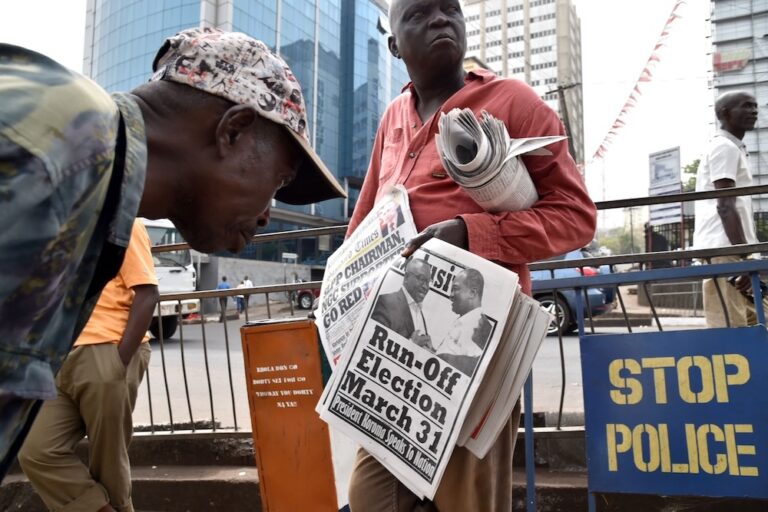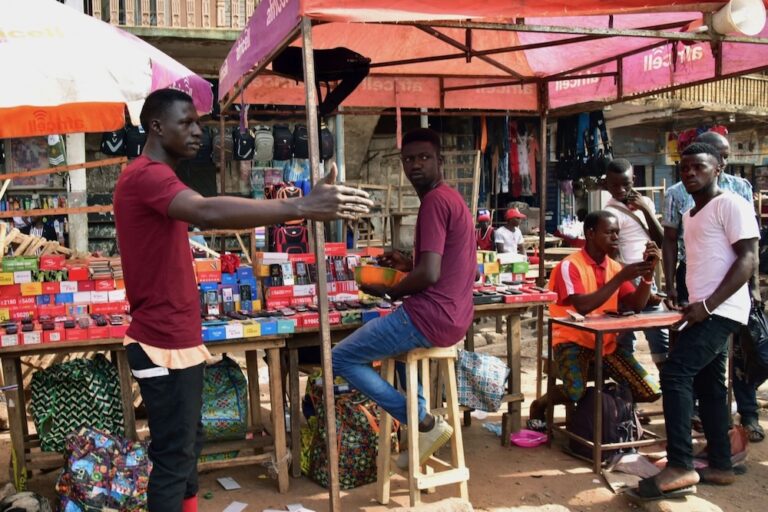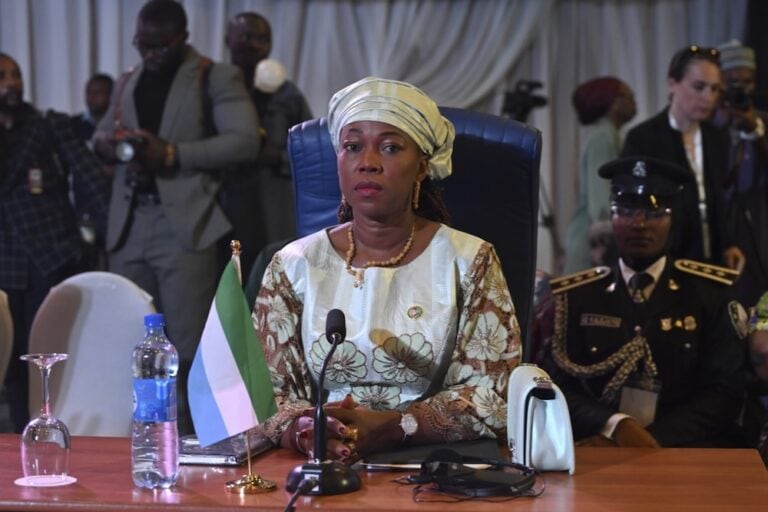(CCPJ/IFEX) – On 25 May 1996, a bloody military coup in Sierra Leone terminated the West African nation’s first meaningful experiment in pluralistic democracy. The Armed Forces Ruling Council (AFRC) which overthrew the constitutional government of President Ahmad Tejan Kabbah have since embarked upon a campaign of repression against any perceived opponent of the junta, […]
(CCPJ/IFEX) – On 25 May 1996, a bloody military coup in Sierra Leone
terminated the West African nation’s first meaningful experiment in
pluralistic democracy. The Armed Forces Ruling Council (AFRC) which
overthrew the constitutional government of President Ahmad Tejan Kabbah have
since embarked upon a campaign of repression against any perceived opponent
of the junta, particularly journalists — a campaign unprecedented in its
viciousness and method. In the first three months of the coup, many of the
country’s leading journalists were hounded from their homes, brutally beaten
and thrown into horrible prisons without charge. Their offices were
ransacked, computers smashed, and many were forced to flee upon their release.
Of about 40 newspapers which operated in the country before the coup, less
than 6 have survived to date, and these have either been forced to be
compliant or operate in an atmosphere of intimidation made all too real by
the frequent arrest and detention of reporters who simply ask “sensitive”
questions. To date, at least 35 journalists have fled the country, most of
them living in almost total deprivation in neighbouring West African
countries as refugees.
Sierra Leonean journalists Lansana Gberie and Mohamed Bangura are living in
exile in Canada. They have joined forces with the CCPJ to establish a fund
for exiled Sierra Leonean journalists; their goal is to highlight the plight
of these journalists and seek some form of assistance for them. Gberie and
Bangura have been able to track down at least 35 such journalists in The
Gambia, Ghana, Guinea, Liberia and the United States; at least three still
remain in prison and some others have gone underground.
The exiled civilian government, still recognised by the international
community as the legitimate voice of Sierra Leone, has opened offices in
Conakry, Guinea, and is operating a government in exile. The Secretary
General of the Sierra Leone Association of Journalists (SLAJ), Richard Olu
Gordon, is also in Conakry, from where he coordinates the work of the
association. Gordon is in contact with the exiled Sierra Leonean journalists
in the West African sub-region, and has been of great help in determining
the whereabouts of the exiled journalists. The CCPJ fund will collect all
financial contributions and will then channel the funds through Gordon.
Exiled Sierra Leonean journalists outside of West Africa can be contacted
directly through the CCPJ office.
The CCPJ is asking your organization to send any amount you can so that we
can relieve the suffering of these journalists. For a list of journalists
and their institutional affiliations, bank transfer details or any other
information, please contact CCPJ (see below).
Thanks in advance for your help.
Signed,
Lansana Gberie
Wayne Sharpe
Executive Director
Canadian Committee to Protect Journalists


